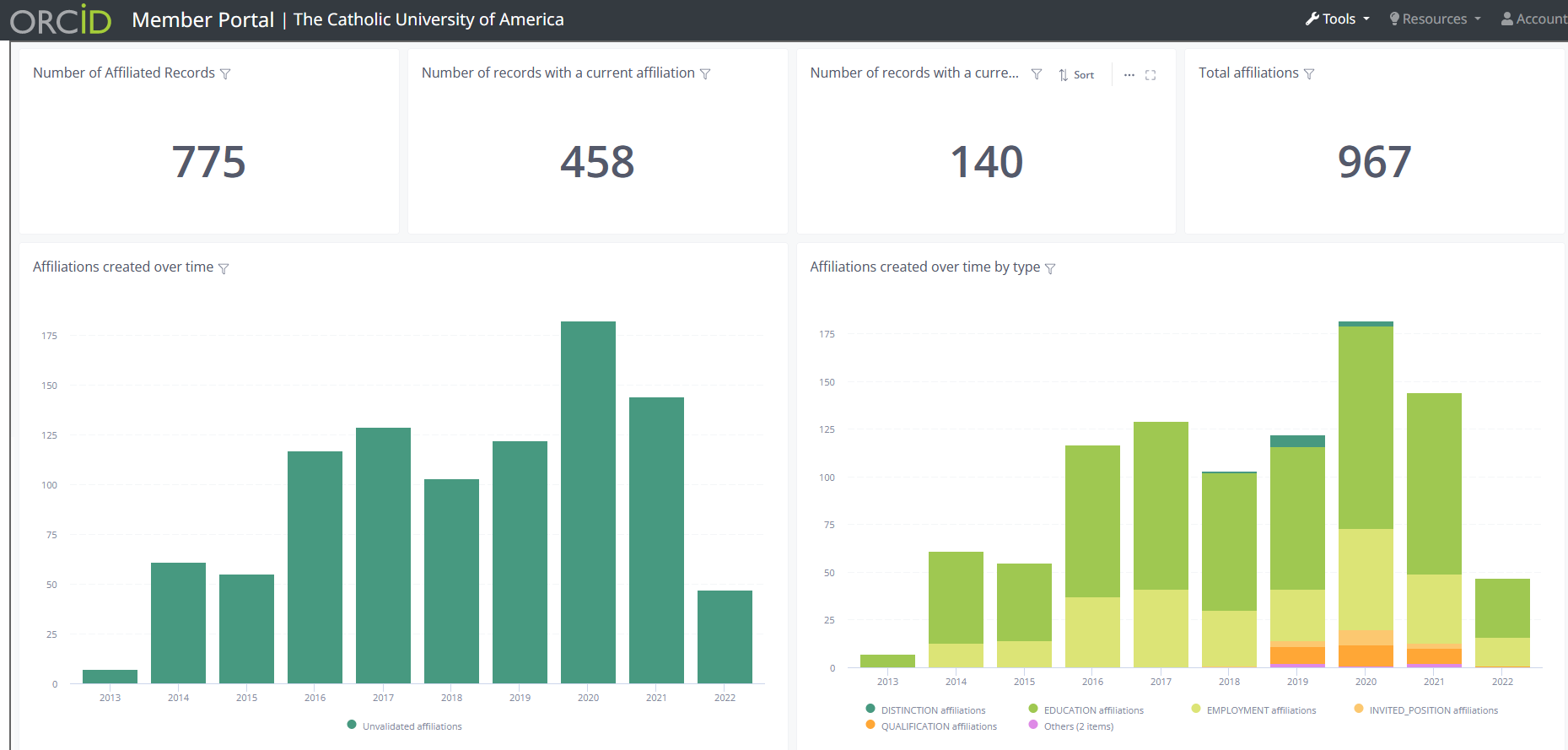Open Access Week is October 24 – 30, 2022. Open Access “is the free, immediate, online availability of research articles coupled with the rights to use these articles fully in the digital environment. Open Access ensures that anyone can access and use these results—to turn ideas into industries and breakthroughs into better lives.” (SPARC*).
What is ORCID?
As a faculty member or a graduate student, you should be establishing a scholarly presence and managing your scholarly reputation. ORCID (Open Researcher and Contributor ID) is a nonprofit organization that provides a standardized way to uniquely identify researchers. ORCID provides a way to identify researchers and their work, no matter when and where it was published. The system is designed to be useful for both researchers and readers. Researchers can use ORCID to claim their work, build their profile, and receive recognition for their work. Readers can use ORCID to find more accurate and reliable citations, discover new research, and explore the work of a researcher. Specifically, ORCID is a persistent digital identifier (PID) unique to you.
What is ORCID? from ORCID on Vimeo.
**Need help setting up your ORCID account? Contact Kevin Gunn, Coordinator of Digital Scholarship, to arrange a consultation.
New Features in ORCID
Affiliation Manager
This new tool allows for the affiliation manager to add affiliation data to a researcher’s ORCID record by simply uploading a CSV file. Further, the affiliation manager can discover the ORCID iDs of their researchers, as well as adding and maintaining organization affiliation data to their researchers’ records. This can save researchers time and helps other systems such as grant management systems, manuscript submission systems, and university research information systems to accurately track the affiliations. Talk to Kevin Gunn, Coordinator of Digital Scholarship, for details.
44 Work Types and Growing
The type of work is central to the ORCID experience. Researchers can now add 44 work types to the registry, including CRediT (Contributor Roles Taxonomy) alongside existing contributor roles, and Data Management Plans (DMP).
Research Organization Registry (ROR)
The evolution of the PID ecosystem over the past decade has been facilitated by organization IDs. The Research Organization Registry (ROR) has been a critical component of this development by supplying organization ID metadata. ORCID has integrated this metadata into its system and now supports ROR’s Organization IDs. RORs can now be used with the API and the Affiliation Manager to easily track the impact of institutional research.
Catholic University and ORCID
Here is a screenshot of our member portal (click on the image to enlarge) with the number of affiliates over time:
Get an ORCID
Your ORCID ID will follow you throughout your scholarly career so acquire this unique identifier to showcase your research and ensure proper attribution of your work:
1. Claim your free ORCID ID at http://orcid.org/register
2. Import your research outputs and add biographical information using the automated import wizards.
3. Use your ORCID when applying for grants, submitting publications, or sharing your CV. Learn more at http://orcid.org
Need help or have questions? Please contact Kevin Gunn, Coordinator of Digital Scholarship (gunn@cua.edu).

